
The Selecter is an English 2 tone ska revival band, formed in Coventry, England, in 1979.

"Sunday Morning" is a song by American band No Doubt for their third studio album, Tragic Kingdom (1995). It was written by Gwen Stefani, Eric Stefani, and Tony Kanal, produced by Matthew Wilder, and released as the record's fifth single on May 27, 1997. The song has also been included on their 2003 greatest hits album, The Singles 1992–2003. Its lyrics describe a romantic relationship that ended in a breakup and was inspired by a discussion that Gwen Stefani had with Kanal. The song has been described as a ska and ska punk recording with elements of reggae and Motown.

"Excuse Me Mr." is a song by American band No Doubt for their third studio album, Tragic Kingdom (1995). The song was written by Gwen Stefani and Tom Dumont, while produced by Matthew Wilder. It was released as the fourth single from the album on August 21, 1996. The song has also been included on the band's 2003 greatest hits album, The Singles 1992–2003. Musically, the former is a rock-influenced ska track with lyrics describing a woman trying to get the attention of a man. A country version of the song was also created but never released. The single received positive reviews from music critics who labelled it a successful breakup song and as one of the best tracks on Tragic Kingdom.
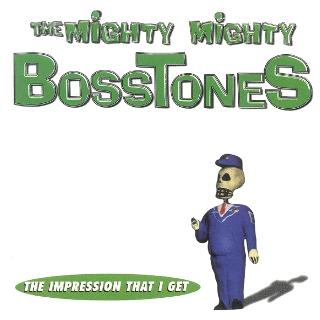
"The Impression That I Get" is a song by American ska punk band the Mighty Mighty Bosstones, released as the lead single from their fifth studio album, Let's Face It (1997), in February 1997. The track reached number one on the US Billboard Modern Rock Tracks chart and number 23 on the Billboard Hot 100 Airplay chart while also charting highly in Australia, Canada, and the United Kingdom. The song was certified gold in the United States and Australia. Chris Applebaum directed the song's music video while Adam Stern produced it.

The Politics of Dancing is the debut studio album by English new wave band Re-Flex, recorded in late 1982 and released in November 1983 by EMI Records, and was, until September 2010, their only officially released studio album. John Punter of Roxy Music fame produced the album at Utopia Studios in London, England.
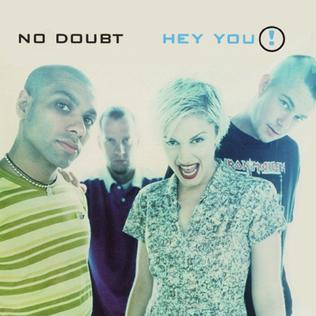
"Hey You!" is a song recorded by American rock band No Doubt. It was released as the seventh and final single from their third studio album Tragic Kingdom (1995). The single was released as a CD single in the Netherlands on February 23, 1998. It is the final single to feature content from original keyboardist Eric Stefani, who left the group in 1995 due to creative issues.
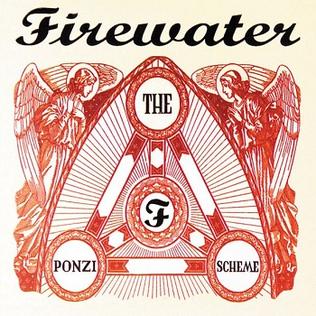
The Ponzi Scheme is the second studio album by the American alternative rock band Firewater. It was released in 1998 by Jetset.
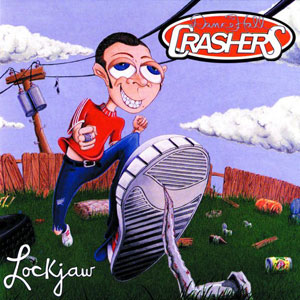
Lockjaw is the second studio album by American rock band Dance Hall Crashers. Produced by the band themselves, Stoker and Rob Cavallo, the album was released on August 29, 1995, in the United States by (510) Records, an imprint of MCA Records.

Suck This is the second live album by the American punk rock band the Queers, released in 1995 by independent record label Clearview Records. It was recorded live in the studio at the Jam Room in Columbia, South Carolina and released as a single-sided picture disc, and reissued on compact disc in 1998. It was the band's only live album recorded during the period when Screeching Weasel members Dan Vapid and Dan Panic were also in the Queers.
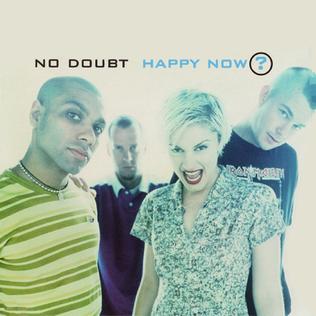
"Happy Now?" is a song by American band No Doubt for their third studio album, Tragic Kingdom (1995). It was written by Gwen Stefani, Tom Dumont, and Tony Kanal, produced by Matthew Wilder, and released as the record's sixth single overall on September 23, 1997. The commercial CD singles were distributed exclusively in Australia and Europe. However, the song was still released to radio stations in the United States. Musically, "Happy Now?" is a ska and rock song with and lyrics detailing a painful breakup, specifically the former relationship between Stefani and Kanal. Despite not receiving a formal release in the United States nor filming a proper music video, "Happy Now?" received heavy rotation on Californian radio stations, such as KROQ.

Faultline is the second album of the American Avant-rock band Birdsongs of the Mesozoic, released in 1989 by Cuneiform Records.

Who's Afraid? is a studio album by Daevid Allen and Kramer, released in 1992 by Shimmy Disc.
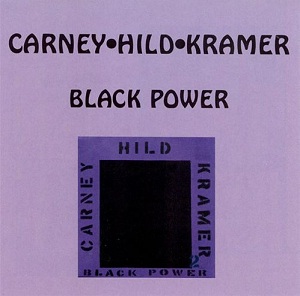
Black Power is a studio album by Ralph Carney, Daved Hild and Kramer, released in 1994 by Shimmy Disc. Along with newly recorded work, the album also contains selected tracks from their previous effort Happiness Finally Came to Them.
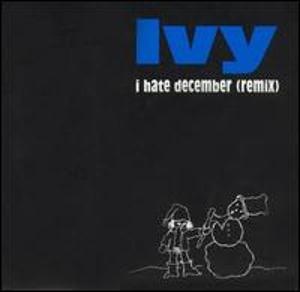
"I Hate December" is a song by American band Ivy, released on January 12, 1996 by Scratchie Records. The track came from the band's first extended play, Lately (1994). It was written and produced by Andy Chase and Adam Schlesinger, while Dominique Durand also contributed to the lyrics and Peter Nashel handled additional production. While the version that appeared on Lately was not released as a commercial single, a remix was created and distributed as a CD single instead.

Lately is the first extended play recorded by American band Ivy, released in May 1994 by Seed Records. Developed in the same year as the formation of the group, Lately is a French pop album with acoustic and general pop influences. Originally conceived by members Dominique Durand and Andy Chase, the pair recruited Adam Schlesinger for additional production and lyrics. Sessions took place in New York City and Paris, where they recorded four original tracks and a cover of Orange Juice's 1984 song "I Guess I'm Just a Little Too Sensitive".

Money Feeds My Music Machine is the second studio album by Captain Howdy, released on April 21, 1998 by Shimmy Disc and Knitting Factory Records. It is a collaboration between musician and producer Kramer and magician Penn Jillette.

Music for Crying is a compilation album by Kramer, released in August 1995 by Creativeman Disc. It comprises recordings made between 1985 and 1994, covering both his solo and collaborative work.

Dawn of the Cycads is a compilation album by Birdsongs of the Mesozoic, released on September 30, 2008 by Cuneiform Records. It comprises much of the band's 1980s output, including Birdsongs of the Mesozoic, Magnetic Flip and Beat of the Mesozoic in addition to three bonus tracks recorded during the same era and a live performance recording from 1987 retroactively titled Between the Fires.
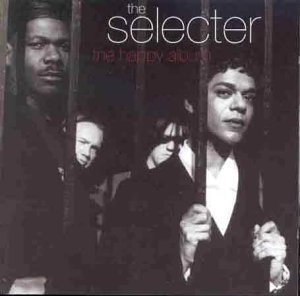
The Happy Album is the third studio album by British ska band The Selecter, and their first following their reformation in 1990, released in 1994 on Demon Music in the UK and Triple X in the US. Their first album of new material in thirteen years, The Happy Album follows their successful live reunion tour of 1991 and its respective live album document, Out in the Streets (1992). Founding member Neol Davies left the band after Out in the Streets while fellow original member Arthur "Gaps" Hendrickson rejoined the band. The new line-up recorded The Happy Album with production from Aswad guitarist Jimmy "Seyna" Haynes
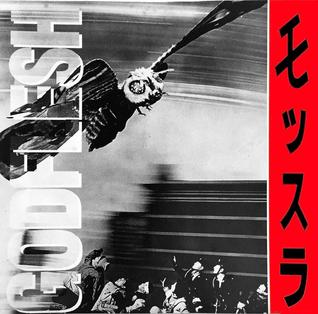
"Mothra" is a song by English industrial metal band Godflesh. It was taken from their 1992 album Pure and saw release as a radio promo and music video in the same year. The track's title is derived from 1961 Japanese film of the same name by Ishirō Honda. Musically, "Mothra" is a grinding, mechanical song with shouted vocals and heavily distorted instruments.





















